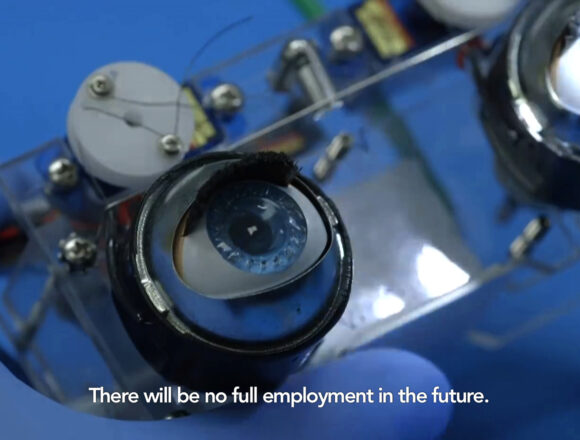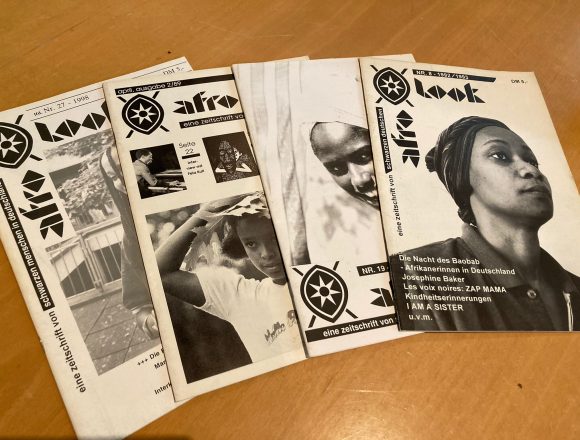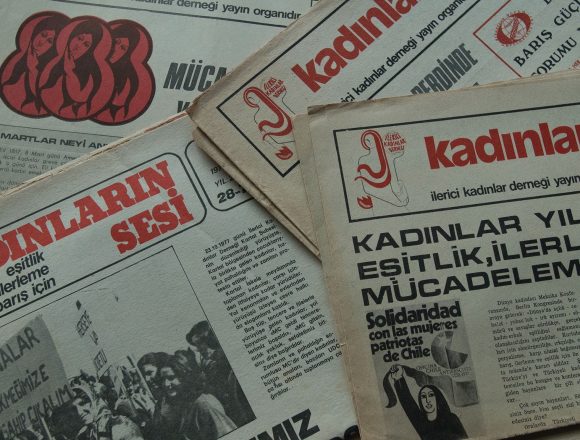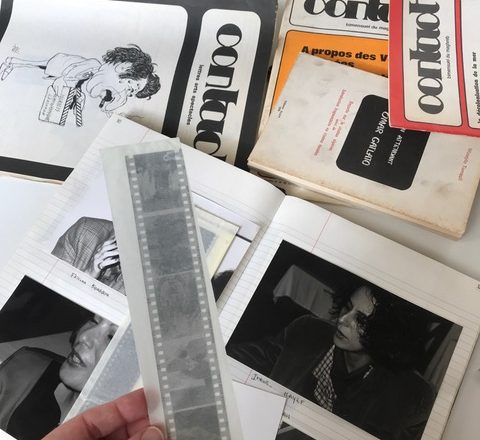
Unpacking Our Library
Unpacking our Library consists of a series of hybrid collective reading practices both digital and physical inhabiting the Archive Inventory library, in collaboration with accomplice libraries in Berlin. How do we inhabit a library collectively? How does a library become a medium for connecting readers’ trajectories, struggles and potential alliances? What are the strategies that collective readings set-up to create moments of exchange, solidarity and citizenship? The program engages with communal formats of readership – from workshops, reading groups, community libraries to reading clubs –, as well as with cultural practitioners, librarians, activists and artists. Each session put into play shared structures of archiving and reading, from digital collections, re-publications to translations and on-going investigations. By socializing collective models of library activations, the program collectively unpacks Archive’s library at its new home in Berlin. Each encounter fosters and nurtures a net of accomplices with whom to engage with in the long-term, weaving a format in which collaborations beyond the scope of this project are welcomed. The very word ‘accomplice’ stems from the Latin complicare which means to “fold, weave together” and bears the meaning of complexifying. By folding a network of accomplices, the program aims to create a kind of virtual publishing space, bringing together complex and multiple perspectives, a platform for research and a convivial web to collectively activate proposals of readership and archiving.
Unpacking our Library is a strain of Publishing Practices, core formation of Archive’s program, committed to an expanded idea of publishing, that triggers and holds a space for study, action and multisensorial gatherings. Publishing Practices is curated by Chiara Figone, Paz Guevara and Beya Othmani.
Activation #5
Saturday May 6, 2023
Language: English
7:30 pm
Archive Berlin
Reinickendorfer Straße 17, 13347 Berlin
The fifth Unpacking our Library activation departs from the practice with and against archives of artist Eli Cortiñas. Cortiñas’ lecture performance ‘I’d Blush if I Could’ questions the gender bias of contemporary digital archives and it tackles the increasing feminisation of technology through devices like voice-activated systems and other forms of artificial intelligence. Navigating archival footage and different audio-visual imagery surrounding various sentient beings (humanoid robots, voice activated systems, chat bots, gynomorphic and zoomorphic social devices),the artist experiments with critical uses of archival and found footage, drawn from the generic images of commercial platforms. Through interventions into such neo-liberal archival vessels, Cortiñas’ artistic practice reveals something ominous at play -simulations, power, surveillance-, while also stimulating ways to de-center and shape-shift their hegemonic prerogatives.
As in her video essays and installations, this lecture performance by Cortiñas is a collage-like audio-visual narrative that combines found imagery with documentary strategies. Working on the montage process as a form of writing, Cortiñas invite us to an archival activation that breaks into the digital repositories of today and challenges memories in the making. ‘I’d Blush if I Could’ questions these repositories’ pervasive patriarchal codes, and the illusion of a democratic digital culture. Cortiñas’ audio-visual tale uncovers the paradoxes of simulating organic and sensorial experiences through new technologies that subjugate human and non-human living entities in new ways, and that foreclose genuine affection, accessibility and equality.
This is the second iteration of ‘I’d Blush if I Could’, a lecture performance by Eli Cortiñas originally commissioned by the Screen City Biennial 2022/2023, Berlin and Oslo, and the Kunsthalle Baden-Baden.
Unpacking our Library is a strain of Publishing Practices, core formation of Archive’s program, committed to an expanded idea of publishing, that triggers and holds a space for study, action and multisensorial gatherings.

Eli Cortiñas, Walls Have Feelings, 2019, video still.
Program:
5.30 pm – 7 pm: Reading Circle (email registration required: miriam@archivebooks.org)
With the lively familiarity of an artist that interrogates and troubles archives, Eli Cortiñas offers a Reading Circle to share and discuss a selection of excerpts from the main theories and stories that she refers to in her lecture performance ‘I’d Blush if I Could’ . The Reading Circle is open to everyone interested in feminist theories and practices of transformation of archives, and the politics of artificial intelligence or voice-activated systems. A convivial dinner with Archive members will be a part of this activity. Please write us here to register: miriam@archivebooks.org
Eli Cortiñas (born in Canary Islands, lives in Berlin) is an artist and educator. Her practice centers around the idea of challenging cinematic memory through analysing and re-editing pre-existing footage, restructuring, reimagining and disturbing the archive. She studied at the Academy of Media Arts Cologne and at the European Film College Ebeltoft, Denmark. Most recently, she has held the solo exhibitions The Body is The House, The House is But Haunted, Kunstverein Braunschweig, Germany (2022), and Walls Have Feelings, KINDL – Center for Contemporary Art, Berlin (2021). Her work has been part of numerous group exhibitions, latest in Landscapes of Labour, KAI10 Arthena Foundation, Düsseldorf, (2022), Existing Otherwise – The Future of Coexistence, SCCA (Savannah Centre for Contemporary Art), Tamale, Ghana (2022), OFF-Biennale Budapest, Hungary (2021), To the Future of Nostalgia, whiteBOX, Berlin (2021), and VIDEONALE.18, at Kunstmuseum Bonn (2021). Currently, Cortiñas is professor of Media Art at the Academy of Fine Arts Leipzig. Previously, she shared a professorship for Spatial Concepts with Candice Breitz at the University of Art Braunschweig (2019 to 2022), and was a guest professor at the Art Academy Kassel (2015 to 2017).
From the archive

Unpacking our library, Activation #5
The fourth Unpacking our library activation invites Algerian writer and feminist Wassyla Tamzali to experiment and explore strategies of collective readings and library activations in conversation with the 𝘐𝘯𝘵𝘪𝘭𝘢𝘬 research team composed by artist Touda Bouanani, curator Lea Morin and publisher Maya Ouabadi.

Unpacking our library, Activation #2
Ausgehend von den Praktiken der Community Bibliothek Each One Teach One (EOTO) e.V. in Berlin-Wedding und der legendären Afro-deutschen Magazins Afro-Look (1987-1999) werden Michael Götting, Autor, Bibliothekar und Kurator, und Ricky Reiser, Aktivistin, Redakteurin und autodidaktische Künstlerin, mit Strategien des kollektiven Lesens und Bibliotheksaktivierungen experimentieren.

Unpacking our library, Activation #1
Taking as a starting point the pages of the feminist newspaper Kadinlarin Sesi (Women’s Voice), Pınar Öğrenci, artist and filmmaker, and Övül Ö. Durmuşoğlu, curator, writer, and educator, explore strategies of collective reading and library activations. While reading the archival material, they make connec- tions between the experiences of former generations of women and today’s artistic and cultural practices.

Unpacking our library, Activation #4
The fourth Unpacking our library activation invites Algerian writer and feminist Wassyla Tamzali to experiment and explore strategies of collective readings and library activations in conversation with the 𝘐𝘯𝘵𝘪𝘭𝘢𝘬 research team composed by artist Touda Bouanani, curator Lea Morin and publisher Maya Ouabadi.
